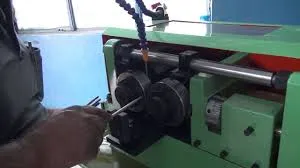
-
 Afrikaans
Afrikaans -
 Albanian
Albanian -
 Amharic
Amharic -
 Arabic
Arabic -
 Armenian
Armenian -
 Azerbaijani
Azerbaijani -
 Basque
Basque -
 Belarusian
Belarusian -
 Bengali
Bengali -
 Bosnian
Bosnian -
 Bulgarian
Bulgarian -
 Catalan
Catalan -
 Cebuano
Cebuano -
 Corsican
Corsican -
 Croatian
Croatian -
 Czech
Czech -
 Danish
Danish -
 Dutch
Dutch -
 English
English -
 Esperanto
Esperanto -
 Estonian
Estonian -
 Finnish
Finnish -
 French
French -
 Frisian
Frisian -
 Galician
Galician -
 Georgian
Georgian -
 German
German -
 Greek
Greek -
 Gujarati
Gujarati -
 Haitian Creole
Haitian Creole -
 hausa
hausa -
 hawaiian
hawaiian -
 Hebrew
Hebrew -
 Hindi
Hindi -
 Miao
Miao -
 Hungarian
Hungarian -
 Icelandic
Icelandic -
 igbo
igbo -
 Indonesian
Indonesian -
 irish
irish -
 Italian
Italian -
 Japanese
Japanese -
 Javanese
Javanese -
 Kannada
Kannada -
 kazakh
kazakh -
 Khmer
Khmer -
 Rwandese
Rwandese -
 Korean
Korean -
 Kurdish
Kurdish -
 Kyrgyz
Kyrgyz -
 Lao
Lao -
 Latin
Latin -
 Latvian
Latvian -
 Lithuanian
Lithuanian -
 Luxembourgish
Luxembourgish -
 Macedonian
Macedonian -
 Malgashi
Malgashi -
 Malay
Malay -
 Malayalam
Malayalam -
 Maltese
Maltese -
 Maori
Maori -
 Marathi
Marathi -
 Mongolian
Mongolian -
 Myanmar
Myanmar -
 Nepali
Nepali -
 Norwegian
Norwegian -
 Norwegian
Norwegian -
 Occitan
Occitan -
 Pashto
Pashto -
 Persian
Persian -
 Polish
Polish -
 Portuguese
Portuguese -
 Punjabi
Punjabi -
 Romanian
Romanian -
 Russian
Russian -
 Samoan
Samoan -
 Scottish Gaelic
Scottish Gaelic -
 Serbian
Serbian -
 Sesotho
Sesotho -
 Shona
Shona -
 Sindhi
Sindhi -
 Sinhala
Sinhala -
 Slovak
Slovak -
 Slovenian
Slovenian -
 Somali
Somali -
 Spanish
Spanish -
 Sundanese
Sundanese -
 Swahili
Swahili -
 Swedish
Swedish -
 Tagalog
Tagalog -
 Tajik
Tajik -
 Tamil
Tamil -
 Tatar
Tatar -
 Telugu
Telugu -
 Thai
Thai -
 Turkish
Turkish -
 Turkmen
Turkmen -
 Ukrainian
Ukrainian -
 Urdu
Urdu -
 Uighur
Uighur -
 Uzbek
Uzbek -
 Vietnamese
Vietnamese -
 Welsh
Welsh -
 Bantu
Bantu -
 Yiddish
Yiddish -
 Yoruba
Yoruba -
 Zulu
Zulu
Custom Roller Threading Machine - Precision Manufacturing Solutions
Custom Roller Threading Machines Revolutionizing Precision Manufacturing
In today’s fast-paced manufacturing environment, precision and efficiency are paramount. The rise of custom roller threading machines has transformed the way industries approach threading processes, ensuring higher accuracy and productivity. These specialized machines are tailored to meet the unique requirements of various manufacturing sectors, including automotive, aerospace, and construction.
The Mechanism of Roller Threading Machines
Roller threading machines operate on a principle that differs significantly from traditional threading methods. Instead of cutting threads into the material, these machines form threads through a series of roller dies. This cold forging process not only enhances the strength of the threads but also improves the surface finish, resulting in components that can withstand greater stresses and fatigue. The rollers compress the material, allowing for precise shape formation without the removal of material, which is a substantial advantage in maintaining material integrity.
Customization for Diverse Applications
One of the most significant advantages of roller threading machines is their customization capabilities. Manufacturers can design machines that are specifically tailored to the dimensions, shapes, and thread profiles required for their products. Whether it's producing large, heavy components or small, intricate parts, custom roller threading machines can be engineered to accommodate these varying specifications. This level of customization not only improves production efficiency but also minimizes material waste, making the manufacturing process more sustainable.
custom roller threading machine

Increased Efficiency and Productivity
By utilizing custom roller threading machines, companies can achieve a remarkable increase in productivity. These machines can operate at higher speeds compared to traditional threading methods, drastically reducing cycle times. Furthermore, the automated processes in modern roller threading machines ensure consistent quality and reduce human error, allowing for a continuous flow in production lines. With the ability to produce thousands of precisely threaded components in a fraction of the time, businesses can significantly ramp up their output while maintaining stringent quality assurance.
Cost-Effectiveness
Investing in custom roller threading machines can lead to long-term cost savings. While the initial capital expenditure might be higher than conventional threading machinery, the operational savings over time can be substantial. Improved material yields, reduced labor costs due to automation, and decreased downtime from machine wear and tear all contribute to a lower overall cost of production. Additionally, the enhanced durability of products made with roller-threaded components can lead to lower warranty claims and improved customer satisfaction.
Conclusion
Custom roller threading machines are at the forefront of precision engineering, offering manufacturers an innovative solution to modern production challenges. Their ability to produce high-strength, high-accuracy threaded components efficiently makes them indispensable in various industries. As technology continues to evolve, the adoption of custom roller threading machines is likely to grow, driving improvements in both quality and productivity. Embracing this technology will not only streamline manufacturing processes but also position companies to thrive in a competitive marketplace.
